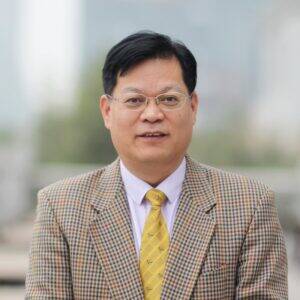
Tokyo, Japan

Tokyo, Japan

|
Prof. Yongguan Zhu Director
General of Research Centre for Eco-environmental
Sciences and Institute of Urban Environment, Chinese
Academy of Sciences, China |
Professor Yongguan (Yong-Guan) Zhu,
Academician of the Chinese Academy of Sciences (CAS), Fellow
of TWAS (The World Academy of Sciences), professor of
environmental science, is currently the Director General of
the Research Center for Eco-environmental Sciences, CAS, and
former Director General of the Institute of Urban
Environment, CAS (2009-2018). Professor Zhu is a leader in
taking multi-scale and transdisciplinary approaches to
environmental problems, and has been working on
environmental pollution, soil biodiversity and microbial
ecology.
He obtained his PhD in environmental biology from Imperial
College, London in 1998. Before returned to China in 2002,
he worked in The Queen’s University of Belfast, UK
(supported by The Royal Society London) and The University
of Adelaide, Australia. Professor Zhu is currently a member
of Committee of Science Planning of ISC. He served for nine
years as a member of Standing Advisory Group for Nuclear
Application, International Atomic Energy Agency (2004-2012).
He has received many merit awards, among them including TWAS
Award for Agricultural Science 2013, National Natural
Science Award 2009, International Union of Soil Science von
Liebig Award 2022. He has published over 600 papers in
international journals and was selected as a Web of Science
Highly Cited Researcher (2016-2023).

|
Prof. Adi Setiawan Universitas Malikussaleh, Indonesia |
Adi Setiawan is currently a Professor of Mechanical Engineering at Universitas Malikussaleh. He is also one of the principal researchers at the Center of Excellence (CoE) for Natural Polymer and Recycled Plastic Technology (TechnoPlast), Universitas Malikussaleh, with more than 20 years of academic and research experience in renewable and sustainable energy systems. His expertise includes biomass thermochemical conversion, hydrothermal carbonization, catalytic combustion, thermal engineering, and advanced bio-based fuels and materials. He earned Ph.D. in Chemical Engineering from the University of Newcastle, Australia, and have published extensively in Scopus-indexed international journals. His research bridges fundamental science and practical applications, particularly in bioenergy, biochar, hydrogen storage materials, and clean fuel technologies. He has led and contributed to numerous nationally funded and industry-collaborative research projects, supervised undergraduate to doctoral students, and actively serve as a reviewer and speaker in international academic forums. His professional focus is on advancing sustainable energy solutions through innovation, collaboration, and high-impact research.
Copyright © ICSEA 2026